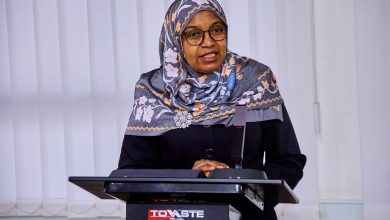Govt vows to intensify efforts to transform agriculture

THE government has expressed its commitment to continue transforming the agriculture sector into a key pillar for inclusive economic growth, food security, job creation and poverty reduction.
The commitment was made by the Deputy Permanent Secretary in the Ministry of Agriculture, Dr Stephen Nindi, while opening the two day Regional Policy Dialogue on Strengthening South-South and Triangular Cooperation (SSTC) for Agrifood Systems Transformation in Sub-Saharan Africa.
The event, which was opened on Wednesday in Dar es Salaam, was convened by the Food and Agriculture Organisation of the United Nations (FAO).
It brought together government representatives from across Africa, regional economic communities and development partners to chart practical pathways for scaling up South-South and Triangular Cooperation (SSTC) initiatives that support agricultural transformation across the continent.
Dr Nindi said that agriculture remains central to the country’s development agenda, underscoring that the government’s vision is not merely rhetorical but demonstrated through bold reforms, targeted investments and institutional strengthening.
“Agriculture is not a subsistence activity, it is a business, a science and a driver of national transformation. Our commitment to the sector is not just in words, it is backed by bold policy reforms, increased investments and strong institutional frameworks,” he said. He said that under the leadership of President Samia Suluhu Hassan, agriculture has been elevated to the centre of the national development agenda.
Dr Nindi said strategic actions have been initiated to mainstream agriculture across key sectors such as education, infrastructure, finance and ICT, recognising the sector’s cross-cutting role in driving sustainable development.
Among the government’s flagship initiatives is the Building a Better Tomorrow (BBT) programme, which is designed to empower youth and women by providing access to land, agricultural inputs, training and market linkages.
ALSO READ: UN: Link tech, agriculture to drive vision 2050
Other key programmes include the second phase of the Agricultural Sector Development Programme (ASDP II) and the National Agricultural Investment Plan (NAIP), both aimed at aligning domestic and international investments for impactful agricultural transformation.
He also said that the country has recorded tangible results in the sector including increased agricultural budget, improved self-sufficiency, rise in food production as well as growth in agricultural exports.
“These achievements speak of our government’s firm resolve to prioritise agriculture as the backbone of national development,” he said.
He further said that African countries share many common challenges from climate vulnerabilities and food insecurity to low productivity and limited access to technology.
Dr Nindi said that the challenges can best be tackled through collaborative and localised strategies that combine indigenous knowledge, SouthSouth learning and inclusive innovation.
Citing Tanzania’s own experience, he highlighted successful collaborations with countries such as Venezuela, South Korea and Indonesia, which have helped advance projects in rice production, seed development and technology rehabilitation.
These efforts, he said, were not just transactions but joint ventures that strengthened capacity, transferred knowledge and delivered tangible results.
“True partnership means sitting at the same table not one side instructing the other, but both sides learning and building together,” he said.
He called for stronger regional collaboration among African countries, especially under platforms such as the African Union and the African Continental Free Trade Area (AfCFTA).
These initiatives, he said, are critical in scaling up African-led innovations, improving intra-African trade and building collective resilience.






496831 6266Im not that significantly of a internet reader to be honest but your blogs truly good, maintain it up! Ill go ahead and bookmark your website to come back within the future. All the finest 986544